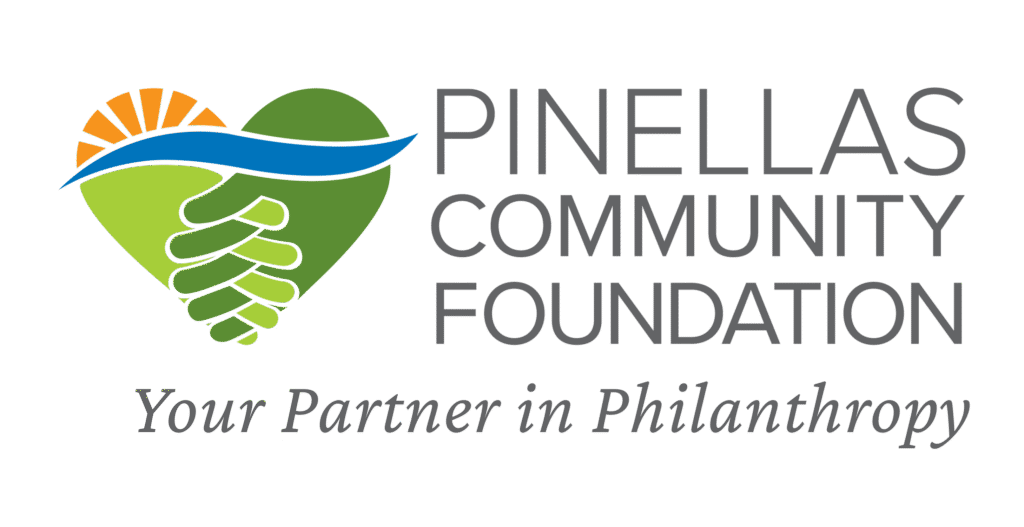It is an honor to name Sandra Diamond as the first Pinellas Community Foundation INSPIRE recipient. If you’ve ever had the opportunity to meet one of Florida’s most well-respected attorneys in the area of Wills, Trusts and Estates, you’d know why. Sandra Diamond has spent her life dedicated to being giving of herself. She sets a standard for future generations of attorneys, leaders and philanthropists.
Civic-minded parents introduced Diamond to community service when she was young. Her father was a U.S. Congressman for Florida, and public service became her family’s way of life. The need for service was amplified early in her career as an attorney. Diamond sat on the board of Gulfcoast Legal Services in St. Petersburg. It was an eye-opening experience, giving her a window into the needs of the community, and all the unmet legal needs of the underserved.
From that point on, Diamond along with her husband, Dr. Frank Diamond, made community leadership the central focus of their lives. It’s now come full circle – their son Ben, also an attorney, serves as a Representative in the Florida House.
For nearly 30 years, Ms. Diamond has consistently and generously given her time, talents and passion to multiple boards of Johns Hopkins All Children’s Hospital (JHACH). In 2008, the Diamonds received the William Belcher Award for their service to the hospital and their advocacy for children’s healthcare. Today, Diamond is chair of the JHACH Board of Trustees, leading the hospital through one of its most challenging times.
In 1991, Diamond began her first of seven terms on the Pinellas Community Foundation (PCF) Board of Governors. Her knowledge of the community helped direct millions of dollars in grant funds to Pinellas nonprofits, and her contributions extend well beyond these two organizations.
Diamond volunteers in countless ways with the Florida Bar, Pinellas Estate Planning Council and the Clearwater Bar. She has won many awards for her contributions to the law field, including the Red Cross Award for training nonprofits in planned giving.
The Importance of Planning
Each day Diamond helps her client’s lay out plans for their future. Through her work assisting clients with their estate planning, Diamond helps facilitate philanthropy. She relishes hearing her clients’ ideas for what they’d like to see their favorite charity accomplish.
In a recent interview with Diamond, she talked about the advantages of planned giving and the importance of estate planning for anyone that owns something of value: a car, a home, or an insurance policy.
The Essentials of Cost-effective Estate Planning
“Most people don’t understand that estate planning is more than just a will. It outlines the distribution of your assets at your death, names the decision-maker regarding you financial and health care decisions in the event of your incapacity and layout a plan for the continued care of your children should anything happen.”
Who needs estate planning?
“Estate planning is not merely for the wealthy. If you own something, be it a car, a house, a coin collection, artwork, you must determine who will receive it after your death. If you have minor children, you will want to designate their guardian and establish a trust to ensure proper management of their funds until they are mature enough to handle their finances. You may need to provide for an elderly or disabled family member. Writing out a plan and properly executing it will make it much simpler for your wishes to be carried out.”
Why does someone need more than a will?
“In a will, you can direct the distribution of assets titled in your name. But in some cases, you may wish to leave your assets in a revocable trust. You also may have assets such as IRAs or life insurance policies which have designated beneficiaries and you will want to make sure that those designations coordinate with the gifts under your will or revocable trust. Additionally, you will want to consider advance directives to allow management of your assets in the event of your incapacity and to provide a surrogate to make your health care decisions.”
What is planned giving?
“Many clients are involved with a charity during their lifetime or have a passion that they wish to benefit in some way. When we start our planning we engage our clients in a conversation regarding their personal and charitable goals. In the past, because the threshold for federal estate taxes was much lower, many clients considered charitable gifts because of the tax advantages. With today’s significantly higher exemptions, many clients continue to include charities in their plans because they want to benefit their communities and understand the importance of philanthropy.”
At what age should one start an estate and giving plan?
“Typically, people start planning for the future once they have children, just in case the unthinkable happens. Others wait until they retire. Truthfully everyone can benefit from a carefully thought out estate plan. Recently, I have prepared advance directives such as durable powers of attorneys, health care surrogates and living wills for young adults leaving home for college. As you age, your situation and aspirations may change. You should revisit your plan occasionally to bring it up to date.”
How does estate planning begin?
“At our firm, we provide our clients with a questionnaire to learn about their families, their assets and how those assets are currently titled. Though this doesn’t tell us the whole story, it allows us to start the conversation and allows the client to focus on their own goals and take an inventory of what they own.”
Can someone change my plan without my consent?
“No one can write a will for you. You can, however, delegate the authority through a durable power of attorney to make changes to beneficiary designations on IRAs or life insurance policies. You can even authorize someone to create a trust on your behalf. Sometimes the best-laid plans are thrown off by the smallest action. For example, a mother with three children may add one child to a bank account so that bills may be paid in the event of an illness… When the mother passes away that account may end up with only one of the children rather than all three.”
What if someone wishes to make a charitable gift but doesn’t have a specific cause in mind?
“Donors who don’t have a specific cause or charity may want to discuss their interests with their professional advisor. Their attorney, CPA or financial planner can discuss the various types of charitable gifts and the benefits that those techniques provide to the donor and the charity. A donor who does not have a specific charity in mind may want to consider using a community foundation. Community foundations provide professional management of the funds. The Pinellas Community Foundation, for example, will allow the donor to make an unrestricted gift which then can be used to benefit charitable causes within Pinellas county.”
Sandra Diamond of The Diamond Law P.A. is located in St. Petersburg and can be reached at (727) 823-1400.
The contents of this article are not meant to serve as legal advice or opinions. If you need legal advice, please contact an attorney directly.




[…] Read the full article here. […]